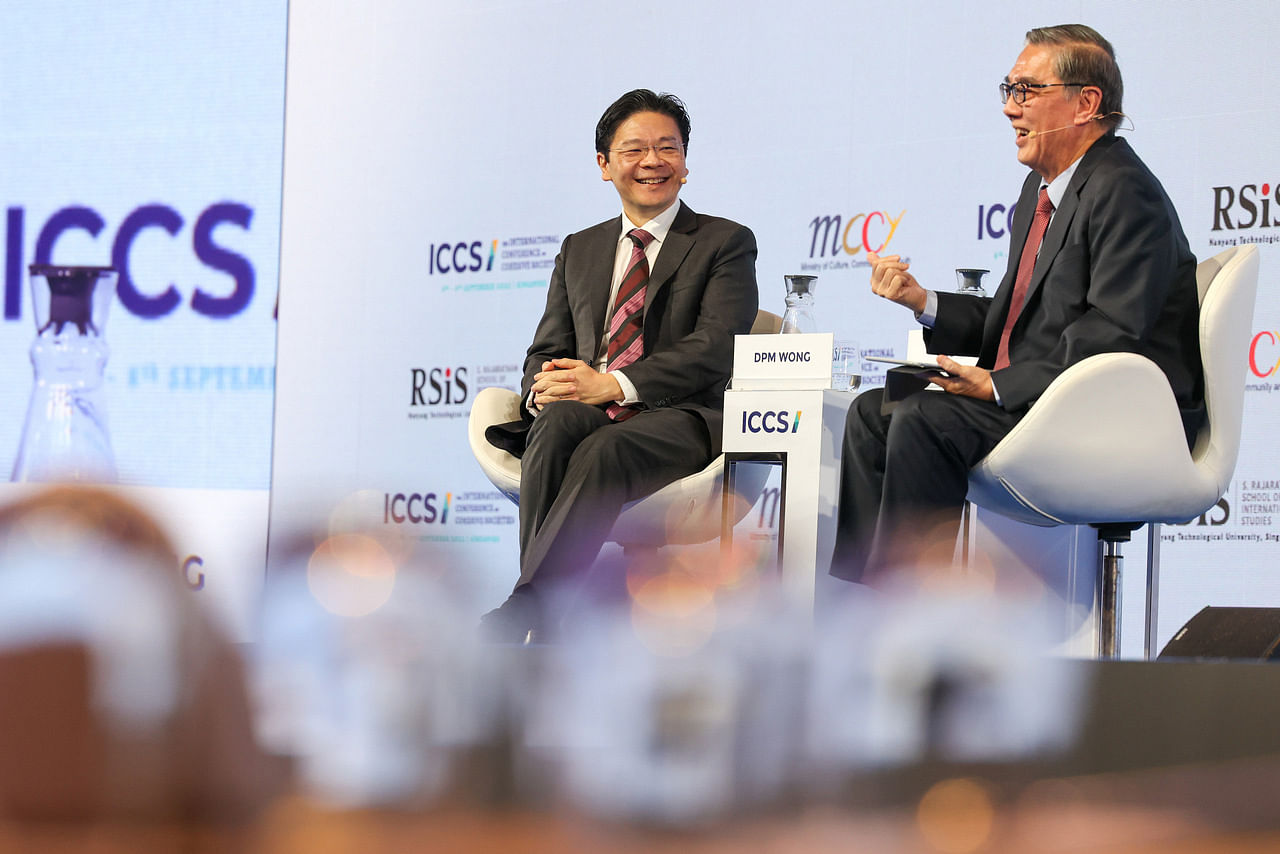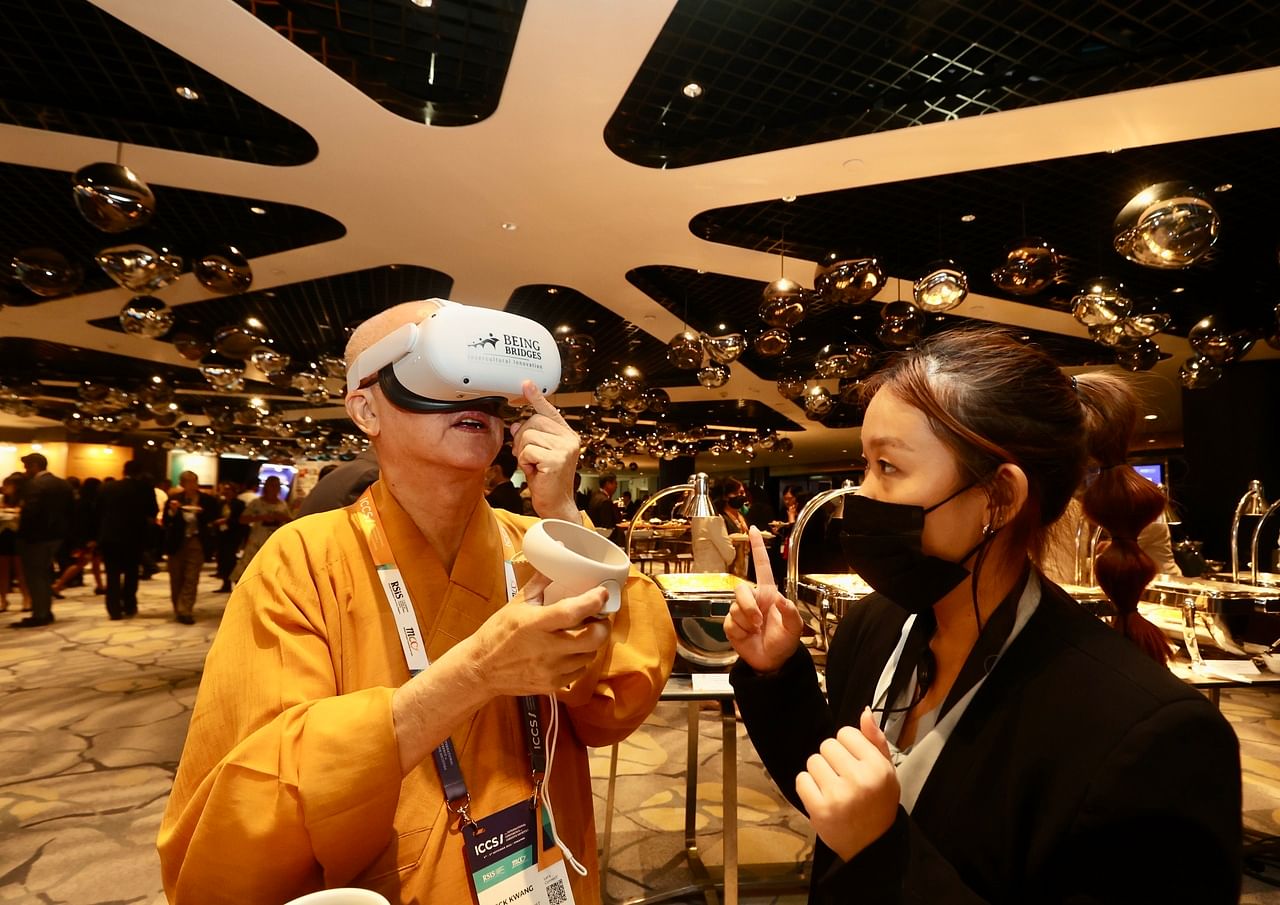Building a cohesive society requires deliberate, consistent effort: DPM Lawrence Wong
Sign up now: Get ST's newsletters delivered to your inbox

Social cohesion begins with people working to understand one another, says DPM Lawrence Wong.
ST PHOTO: DESMOND WEE
SINGAPORE - The Covid-19 pandemic was a test of social cohesion and trust played a key part in tackling the crisis, Deputy Prime Minister Lawrence Wong said on Thursday.
An Oxford study found that high-trust countries - in which people trusted the authorities to manage the crisis and one another to do the right thing - had lower Covid-19 death rates, he added.
Today's challenges, such as rising costs and geopolitical tensions, will again strain social unity.
The question, therefore, is how to deepen the reservoirs of trust in a volatile world, he said at an international conference on social cohesion.
"If I were to distil Singapore's approach, it would be this: That social cohesion does not come about by chance, but is achieved only through a deliberate and consistent effort to understand one another, to accommodate one another, and to flourish together," said DPM Wong.
People should also believe they can benefit from the nation's prosperity, which was why Singapore pursued inclusive growth, he added.
Mr Wong, who is also Finance Minister, was speaking to religious leaders, policymakers, academics and civil society activists on the third and last day of the International Conference on Cohesive Societies at the Raffles City Convention Centre.
The event, which was held for the second time since 2019, drew 800 participants from over 40 countries who came together to discuss issues of faith, identity and cohesion.
In his speech, Mr Wong said social cohesion begins with people working to understand one another, and overcoming the natural tendency to gravitate towards those who look or sound like them.
This starts with fostering contact and interaction between people from different backgrounds.
Singapore does this deliberately, he said. Policies for public housing ensure people of different races live close together, national schools and national service create shared experiences, and common spaces like playgrounds, hawker centres and schools help people see they have more in common.
The Republic has also put in effort to promote dialogue among community, religious and government leaders, he added.
But engendering social contact is not enough, said Mr Wong. In diverse societies, there are bound to be issues where people cannot see eye to eye, as there may be deeply held positions stemming from fundamentally different worldviews.
"The question then is how do we resolve these fundamental disagreements - how do we strike a balance, and not allow different views to tear a society apart," said Mr Wong.
He noted the many instances globally where disagreements have led to divisions.

Without dialogue and compromise, issues turn into zero-sum battles, and groups start pitting themselves against one another. Societies become more inclined towards suspicion and antagonism, making it difficult to take on existential issues like climate change, he said.
Singapore has experienced this, said Mr Wong, citing the racial riots in the 1960s.
It resolved to go down a different path, and sought instead to resolve differences through negotiation and compromise, and foster a culture of accommodation, he said.
The guiding principle, he added, is to preserve maximum space for each community to lead their own lives. This does not mean giving each group everything it wants, but striving for a balance of interests that everyone can accept and live with.
“It also means rejecting calls for maximum entitlements by any single group, and avoiding attempts to construe every compromise as an injustice. This is not easy to do, but over time it has become ingrained in our collective mindset," he said.
"And when people see that this is not only possible, but valuable and precious, it spurs them on to engage with one another, build consensus, find ways to compromise different views, and deepen social cohesion."
This is a "never-ending journey", he added.
As society's views evolve, so too must policies.
Mr Wong said Singapore does so not through forceful decisions, but through negotiation and compromise.
He also underscored the importance of people being allowed to flourish together.
This means each person feels he can benefit from the nation's continued prosperity, forge dignified and fulfilling lives, and see his children do better than he did.
"They must see an arc of progress in their society, and not feel eclipsed by it," he said.

This is why the Forward Singapore exercise is being conducted to refresh the social compact, and ensure the country pursues inclusive growth with opportunities for all, as well as assurances that people will be supported if they fall on hard times, he said.
The task of building an inclusive society is not just the responsibility of the Government, but of every community and citizen, he added.
Mr Wong noted that everyone in the audience is involved in the "project" of social cohesion in different ways.
It can often seem like an uphill battle, but the work is never finished, he added, expressing the hope that people will encourage one another and press on in their labours.
"For if we do, if we deepen, tighten and strengthen the societies we belong to, we will also do our part to make this world better, and perhaps a little brighter. And that is certainly a project well worth our while to pursue," he said.


